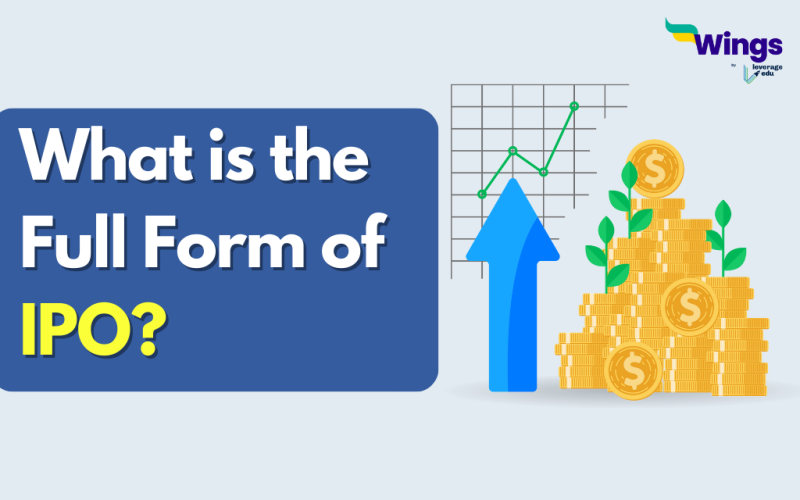IPO Full Form: The process by which private corporations sell their shares to the public in order to raise equity money from public investors is referred to as an initial public offering (IPO). The full form of IPO is Initial Public Offering.
The IPO process converts a privately held firm into a publicly traded company. This technique also provides knowledgeable investors with the possibility to earn a good return on their money.
If you are a knowledgeable investor, investing in IPOs can be a wise decision. However, not every new IPO represents a fantastic opportunity. Benefits and hazards are inextricably linked. Before you get on the bandwagon, you should first learn the fundamentals.
Table of Contents [show]
What is IPO in Stock Market?
An IPO is typically undertaken to infuse new equity money into the firm, to promote easier trading of current assets, to raise capital for the future, or to monetize existing stakeholders’ stakes.
The prospectus contains information about the first sale of shares to institutional investors, high-net-worth individuals (HNIs), and the general public. The prospectus is a lengthy document that contains information about the prospective offerings.
Once the IPO is completed, the firm’s shares are listed and can be freely traded in the open market. The stock exchange mandates a minimum free float on shares in absolute terms as well as a percentage of total share capital.
Types of IPO?
There are two sorts of IPOs. They are as follows:
Fixed Price Offering
The issue price that some companies set for the initial selling of their shares is referred to as a fixed-price IPO. The price of the stocks that the corporation decides to make public is disclosed to the investors.
Book Building Offering
In the event of book building, the company launching an IPO provides investors with a 20% price band on the equities. Before the ultimate price is determined, interested investors bid on the shares. The investors must identify the number of shares they wish to purchase as well as the price per share in the share market.
Advantages and Disadvantages of IPO
Investing in IPOs has advantages and disadvantages. Here are some of the advantages and disadvantages you should be aware of before making an investment decision.
| Advantages | Disadvantages |
| Increased Recognition | More Costs |
| Access to Capital | Lesser Autonomy |
| Diversification Opportunity | Extra Pressure |
| Management Discipline | – |
| Third-Party Perspective | – |
Eligibility Criteria
To be eligible to invest in an IPO, a real investor should fulfil the following criteria:
- Must be at least 18 years old.
- For stock investments, a Permanent Account Number (PAN) is required.
- To apply online, you must have a DEMAT account with a SEBI-registered stockbroker in India.
- You should have a DEMAT account linked to your bank account for smooth fund transfers and withdrawals.
As a result of these trading account characteristics, traders can profit from stock market trading.
Example of IPOs
The following are some examples of an IPO:
- LIC
- Reliance Industries
- Meta (Facebook)
- General Motors
Must Read: What is the Full Form of RCT?
Must Read: What is the Full Form of LOML?
We hope this has helped you to gain information about IPO. Do you want to know more full forms like this? In the world of short forms, you can rely on our page to know more! Get in touch with our study abroad experts to achieve your international dream today!
 One app for all your study abroad needs
One app for all your study abroad needs















 45,000+ students trusted us with their dreams. Take the first step today!
45,000+ students trusted us with their dreams. Take the first step today!
